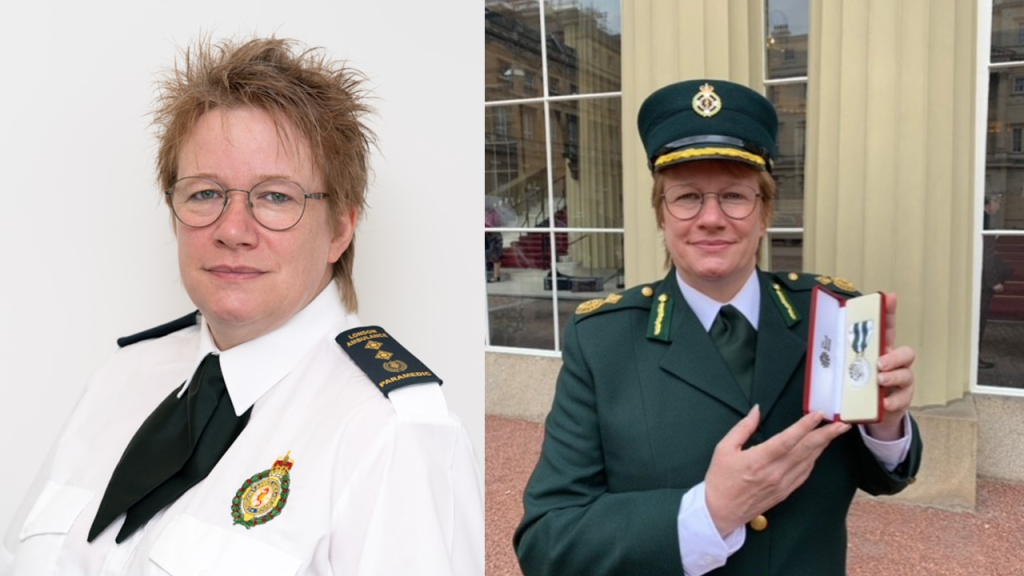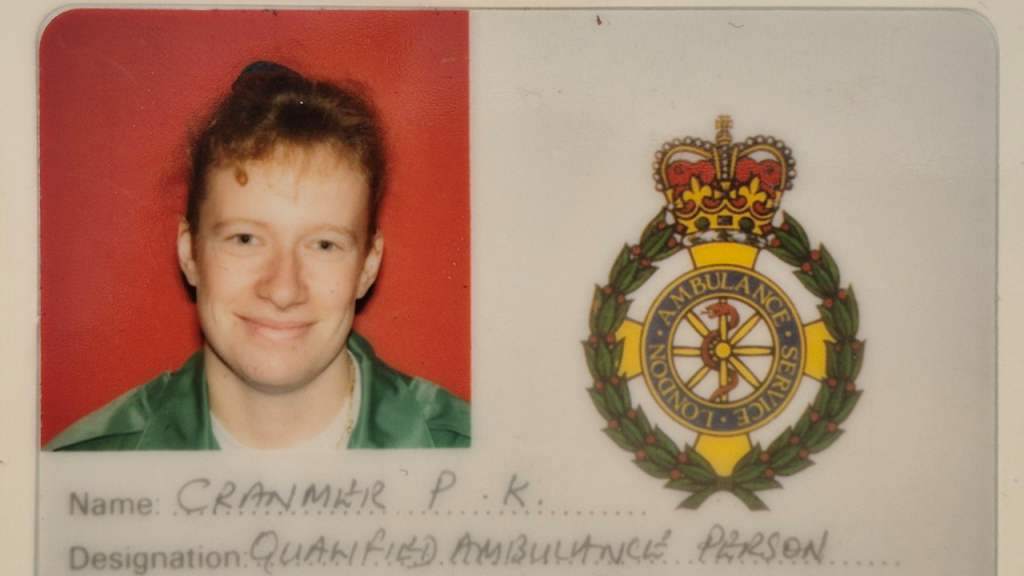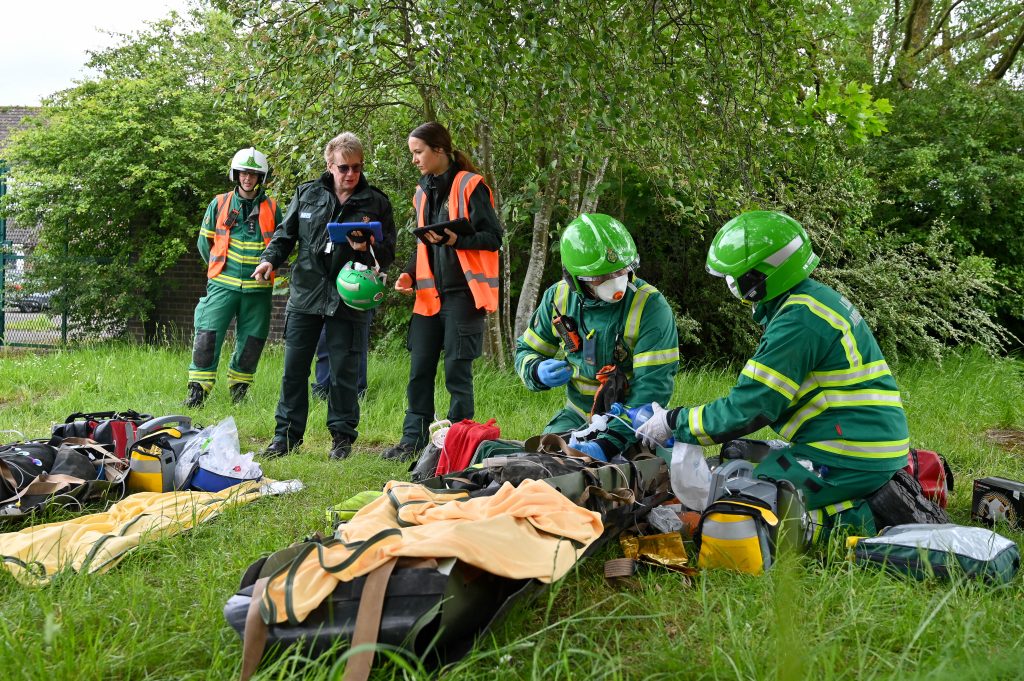UK’s first female chief paramedic takes the helm at London Ambulance Service
Pauline Cranmer has been appointed as chief paramedic at London Ambulance Service after a distinguished career spanning 30 years in the capital, marking the first time a woman has held the title anywhere in the country.

Following an open external recruitment campaign, Pauline was appointed after a robust and competitive series of interviews.
Pauline joined the Service in 1994 as a technician before qualifying as a paramedic.
She is also an experienced strategic commander and led the response to the Westminster Bridge terror attack.
Throughout her career she has always shown her devotion to duty – an accolade which saw her awarded the prestigious Queen’s Ambulance Service Medal in 2019.
Pauline said: “This senior executive paramedic role is the opportunity to blaze the trail for all those that come after me. It is a real opportunity to help develop the profession of paramedicine itself, and the people within it. I am looking forward to developing and enhancing further improvements to the care we are able to give patients in London.
“I’m also really proud to be reaching 30 years in the Service. I feel a combination of emotions about it. I feel really proud, but a bit shocked – because it’s a long time –and also a bit reflective of all the different things I’ve done during my career. It feels like such a big milestone.

“But overall I am just so excited for the future at London Ambulance Service.”
Formally welcoming Pauline to the executive team, Chief Executive Daniel Elkeles said: “After 30 years at London Ambulance Service, Pauline brings experience and an intricate knowledge of London’s health system to our leadership team and we’re lucky to have someone who is so committed to developing our staff.
“She’s a great role-model and she continues to develop her career at London Ambulance Service and help shape the organisation so it can continue to care our patients in the years ahead.”
Over the years Pauline has witnessed huge changes at London Ambulance Service, to the nature of her profession and to the city itself. And her own role has continued to evolve.
She said: “The opportunity to work with so many different teams, across parts of the organisation, meeting fantastic people and working with and learning from amazing role models has been incredible.

“Who I am today, as a person and a leader in my work, has been shaped by people that I have worked with.
“So many people have really supported me, nurtured my career aspirations and helped me to achieve my goals.
“It’s something I try to bring into my own leadership and mentoring and it’s the reason why I feel passionately about succession planning, and developing the future leaders now.”
The roles have always come with their own challenges – the COVID-19 pandemic being particularly difficult, leaving her and the Service “really proud as a team but quite exhausted”.
Her working environment 30 years ago – especially as a woman – was another challenge.
She said: “When I think about the culture when I first joined, I reflect on how far we have come, but also how much more we need to do to have a truly safe workplace for all.”
When she started ambulance stations were very male-dominated areas, and some stations only had one (male) toilet!
The uniforms and vehicles have also transformed over the years – for the better.
When she first began her career, she drove a Bedford ambulance and donned the green boiler suit uniform.
She said: “The uniform we had then was anything but flattering. It wasn’t good at keeping you warm or cool.
“They also had this odd pocket that if you knelt down to treat a patient would mean you’d often expose your underwear! You had to wear cycling shorts underneath to protect your dignity.”
In addition to these practical challenges, many expectations, judgements and interactions were a struggle.
She said: “There was often an assumption that because you were a woman, you couldn’t be the paramedic. You sometimes had to try much harder to be accepted and faced assumptions that you couldn’t lift as much as the male staff, or even drive!
“Now in retrospect and looking back over a long career, I’m really glad that people like me have come through those times and gone on to thrive. I am really proud that many of the women of my generation of technicians and paramedics are now in leadership roles.
“I am in privileged position now to be able to reflect back on the past, my experiences, and strive to ensure people are never subjected to that kind of treatment again.”
Female representation across the Trust now stands at 51 per cent, according to the latest LAS Annual Report.
She said: “It is right we see the shift in balance of gender. We are now at about 51 per cent female, but that goes up to about 60 per cent if consider our students, who are our paramedics of the future.
So seeing that shift is something that makes me feel really proud of the change that’s been undertaken and I’m so excited to see what is yet to come for the female paramedics of the future.
“We are the biggest ambulance service in the UK and committed to increasing the opportunities for our staff and creating exciting careers for them to pursue.
“The role of a paramedic has evolved significantly over the last 30 years, all to the benefit of the patient.
“If you want to go from a paramedic in an ambulance to running the control room, and you put in the work – you can. I did,” she added.
“My best advice would be to find someone you can talk to about your future plans and build your career towards what you want to do.
“There are no limits on what you can do – you just have to decide!”
For more information about career opportunities at London Ambulance Service visit our careers page on our website.

Follow us on social media: